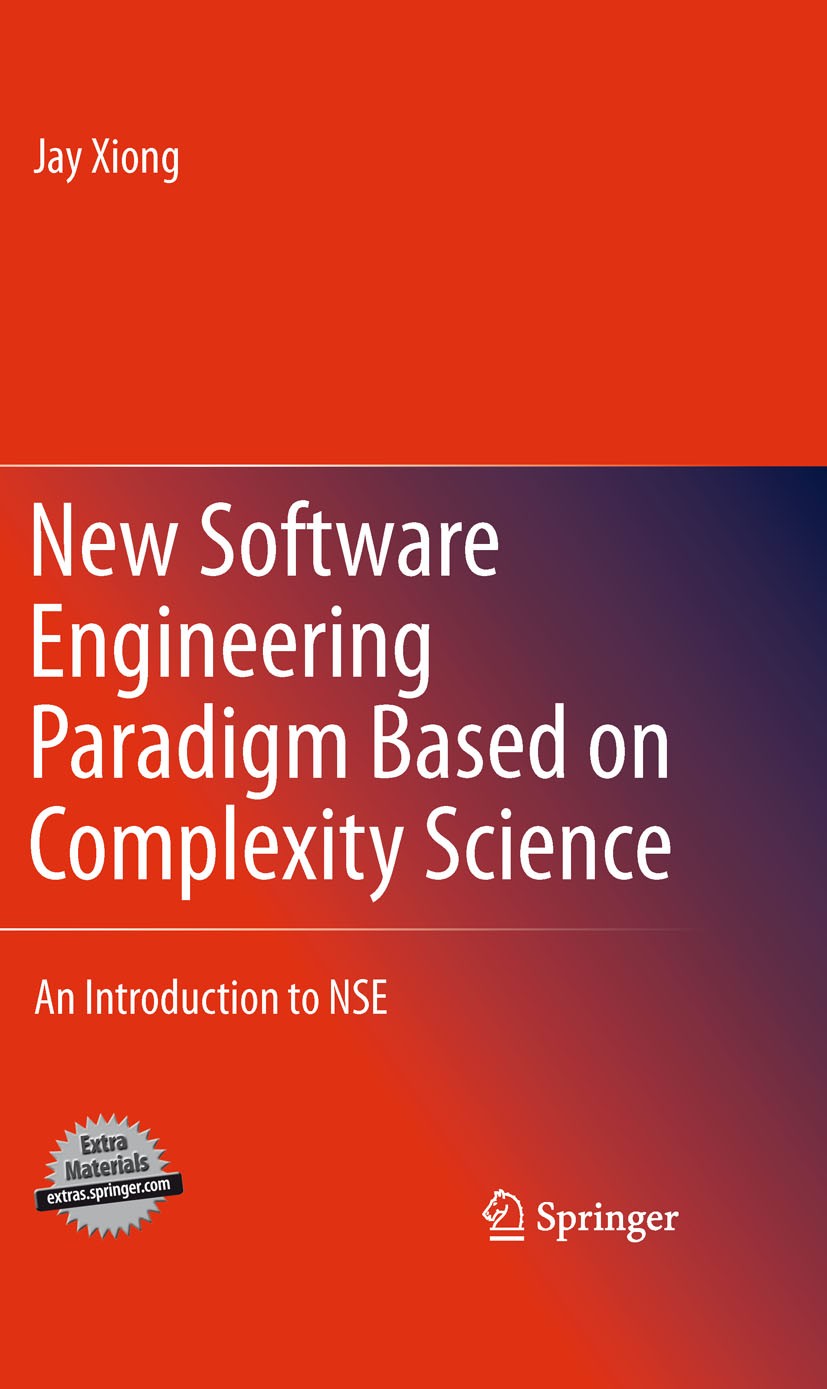| 書目名稱 | New Software Engineering Paradigm Based on Complexity Science | | 副標(biāo)題 | An Introduction to N | | 編輯 | Jay Xiong | | 視頻video | http://file.papertrans.cn/666/665757/665757.mp4 | | 概述 | New foundation (complexity science) for establishing software engineering paradigm; New software development methodology driven by defect prevention and traceability; New software diagramming paradigm | | 圖書封面 |  | | 描述 | .This book describes a complete revolution in software engineering based on complexity science through the establishment of NSE – Nonlinear Software Engineering paradigm which complies with the essential principles of complexity science, including the Nonlinearity principle, the Holism principle, the Complexity Arises From Simple Rules principle, the Initial Condition Sensitivity principle, the Sensitivity to Change principle, the Dynamics principle, the Openness principle, the Self-organization principle, and the Self-adaptation principle. The aims of this book are to offer revolutionary solutions to solve the critical problems existing with the old-established software engineering paradigm based on linear thinking and simplistic science complied with the superposition principle, and make it possible tohelp software development organizations double their productivity, halve their cost, and remove 99% to 99.99% of the defects in their software products, and efficiently handle software complexity, conformity, visibility, and changeability. It covers almost all areas in software engineering..The tools NSE_CLICK- an automatic acceptance testing platform for outsourcing (or internally | | 出版日期 | Book 2011 | | 關(guān)鍵詞 | Complex Systems; Complexity; Nonlinear Software Engineering; Software Development Methodology; Software | | 版次 | 1 | | doi | https://doi.org/10.1007/978-1-4419-7326-9 | | isbn_softcover | 978-1-4899-8159-2 | | isbn_ebook | 978-1-4419-7326-9 | | copyright | Springer Science+Business Media, LLC 2011 |
The information of publication is updating

|
|
 |Archiver|手機(jī)版|小黑屋|
派博傳思國(guó)際
( 京公網(wǎng)安備110108008328)
GMT+8, 2025-10-19 01:35
|Archiver|手機(jī)版|小黑屋|
派博傳思國(guó)際
( 京公網(wǎng)安備110108008328)
GMT+8, 2025-10-19 01:35


